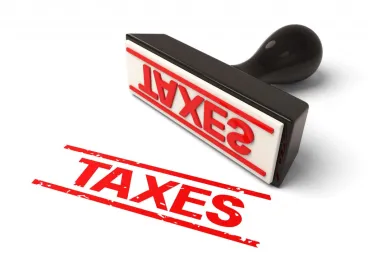One important feature of every audit is the request and collection of relevant taxpayer materials by the Internal Revenue Service (IRS). Such materials are typically collected through the rules and procedures associated with an Information Document Request (IDR). However, for audits that involve the collection of foreign-based documentation, the Internal Revenue Code (Code) provides a modified set of rules under the Formal Document Request (FDR) procedures outlined in Code Section 982.
Code Section 982(c)(1) authorizes the IRS to issue an FDR to any taxpayer to request “the production of foreign-based documentation.” An FDR supplements the IRS’s summons authority and its purpose is to discourage taxpayers from delaying or refusing to disclose certain foreign-based documentation to the IRS. Taxpayers should be aware of FDR procedures because failure to respond – either through substantial compliance or some alternative permissible action – within the statutory 90-day response period could result in significant consequences concerning the admissibility of FDR-requested items in future civil proceedings.
To assist taxpayers, the IRS has provided additional guidance on the modified rules in the form of an LB&I International Practice Unit (IPU). As noted in the IPU, FDRs are issued to collect foreign-based documentation (including books and records) which “may be relevant” to an examination and that are within the possession, custody, and/or control of a foreign subsidiary or other foreign member of a US taxpayer group. In general, this includes documentation held abroad as well as copies of foreign-based documents held in the United States. The legislative history to Code Section 982 indicates that foreign-based documentation includes documents held by a foreign entity even if the entity is not controlled by the taxpayer. Taxpayers should note that courts have held that foreign-based documents do not lose their characterization as “foreign-based” (and thus their responsiveness to an FDR) merely because copies are held in the United States. Thus, taxpayers cannot avoid producing foreign-based documents in response to an FDR merely because copies of the documents are brought to the United States.
One key limitation is that FDRs are issued only after normal request procedures have failed. Therefore, the IRS will first attempt to collect such materials through the standard IDR procedures before issuing an FDR. Under Code Section 982(a)(1), a valid FDR must contain the following elements: (1) information on the time and place of production; (2) an explanation of why the information previously provided by the taxpayer (if any) was insufficient; (3) a detailed description of the requested material; and (4) an explanation of the consequences for failure to respond. These four elements serve as a notice requirement to ensure taxpayers are aware of the modified rules and penalties associated with the failure to comply with the FDR procedures.
One notable difference between the IDR and FDR procedures is that due to jurisdiction concerns with foreign-based records (among other issues), the IRS cannot enforce an FDR through a summons enforcement proceeding. Instead, the primary tool to encourage compliance is through the exclusionary rule under Code Section 982. If the taxpayer fails to “substantially comply” with an FDR, the exclusionary rule operates by prohibiting the taxpayer from introducing such materials in future civil proceedings.
As with most IRS requests for taxpayer materials, the taxpayer should make every effort to ensure substantial compliance with an FDR, especially in light of the exclusionary rule effects under Code Section 982. Some courts have held that this burden requires more than “a mere assertion of inability”, and requires that the taxpayer has made “in good faith all reasonable efforts to comply.” Taxpayers may file a motion to quash in local district court, but must do so within the 90-day response period. Taxpayers should note that once a motion to quash is filed, the IRS may seek to compel compliance as part of those proceedings. As with a summons enforcement action related to a normal IDR, the IRS has the initial burden of meeting Powell factors. The burden then shifts to the taxpayer to demonstrate why enforcement should not be ordered (e.g., documents are not relevant or are privileged).
As noted above, the failure to respond to an FDR can have serious consequences to a taxpayer in future litigation. Taxpayers receiving an FDR should formulate a response within the FDR response period to avoid any potential exclusionary rule effects over foreign-based taxpayer material that might damages their case in a later litigation.



 />i
/>i
